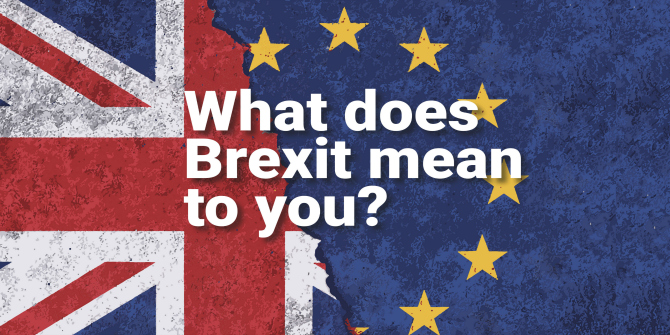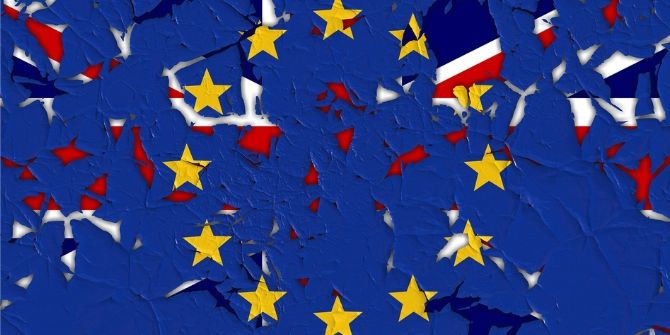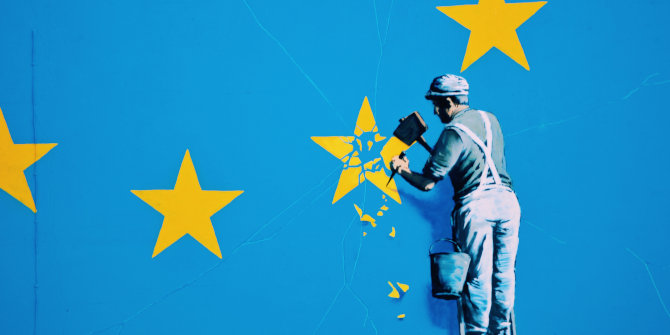The history of the UK in and out of the European Union has been a long and complex one. LSE Library has unique collections that document this history, from the archives of MPs active in the debates, to think tanks and campaigning groups arguing for and against the UK’s membership of the EU. Running until 14 December 2018, a new free public exhibition at LSE Library, ‘What does Brexit mean to you?’, features some of the items from these collections. Invited curators from the LSE community interpret and explain these objects. Curator Daniel Payne picks out his 5 favourite objects from the exhibition.
1). ‘What does Brexit mean to you in three words?’ visitor wall

Since the exhibition opened, we’ve had over 400 responses to this question from visitors, which has become a fascinating object in itself that changes every day. From ‘Everything and Nothing’ to ‘Things were attempted’, the answers also span multiple languages such as English, Welsh, Arabic and Romanian.
2). Anti-fascist Federal Union badges
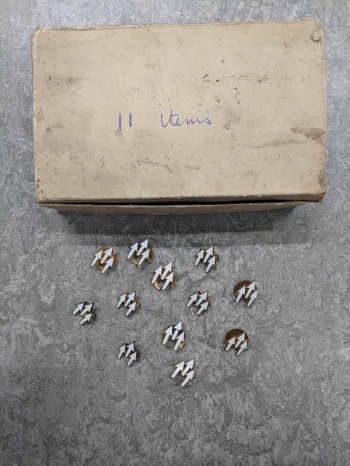
Anirbaan Banerjee, a postgraduate student from LSE Sociology, came to explore the archives of the Federal Union, an organisation founded in 1938 to advance the cause of federal government worldwide to achieve international peace. These Federal Union membership badges from the 1940s were adapted from the three-arrow anti-Nazi symbol which were ‘chalked on walls all over Europe’ as they could be used to easily paint over the swastika.
3). Photograph from the Newbury by-election, 1993

This photograph is from Alan Sked’s ‘battle bus’ used to campaign in the Newbury by-election of 1993. LSE Emeritus Professor of International History Alan Sked (pictured centre, with Nigel Farage second to right) founded the Anti-Federalist League in 1991 to protest against the Maastricht Treaty. The organisation would later change its name to UKIP, and Sked writes in the exhibition about his reasons behind its foundation (see also the LSE History Blog post, ‘The Founding of the Anti-Federalist League’).
4). Harold Wilson government leaflet
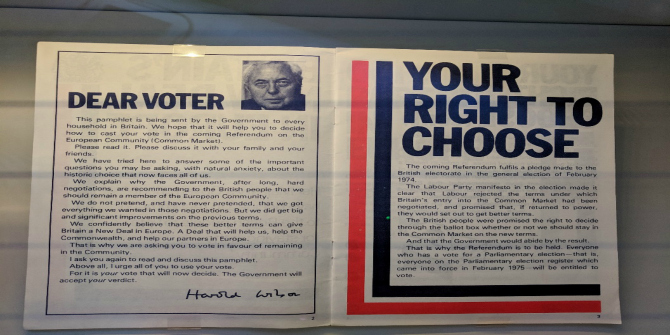
In 1975, the UK held its first national referendum where the electorate were asked ‘Do you think the United Kingdom should stay in the European Community (the Common Market)?’, with 67 per cent voting ‘Yes’. This is the official Government’s leaflet at the time, with an introductory message from then Prime Minister Harold Wilson. You can read the leaflet in full online here, as well as browse other campaigning leaflets from the time, such as ‘Why every student should vote no in the referendum’.
5). The 2016 Referendum Vote
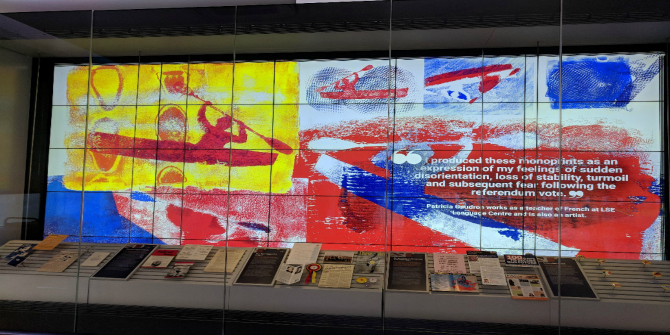
In the lead-up to the 2016 referendum vote, LSE Library worked with the British Library to collect campaigning leaflets, which are on display at the exhibition (and available online here). In addition to this, teacher of French at LSE and artist Patricia Gaudron produced some monoprints to express her feelings related to the referendum vote. They are a very striking series of images that serve as a backdrop to the archive images on display.
If you want to visit the exhibition and pick out your own favourite objects, ‘What does Brexit mean to you?’ is running in LSE Library until 14 December 2018 and is free and open to all.
This feature gives the views of the author, and not the position of the LSE Brexit blog, or of the London School of Economics. it first appeared on the LSE Review of Books blog. Images are provided courtesy of LSE Library/the London School of Economics and should not be reproduced without the permission of the copyright holder.
Daniel Payne is the Curator for the Politics and International Relations archives at LSE Library, where he has worked since 2012, connecting students, staff and anyone interested in our special collections.


